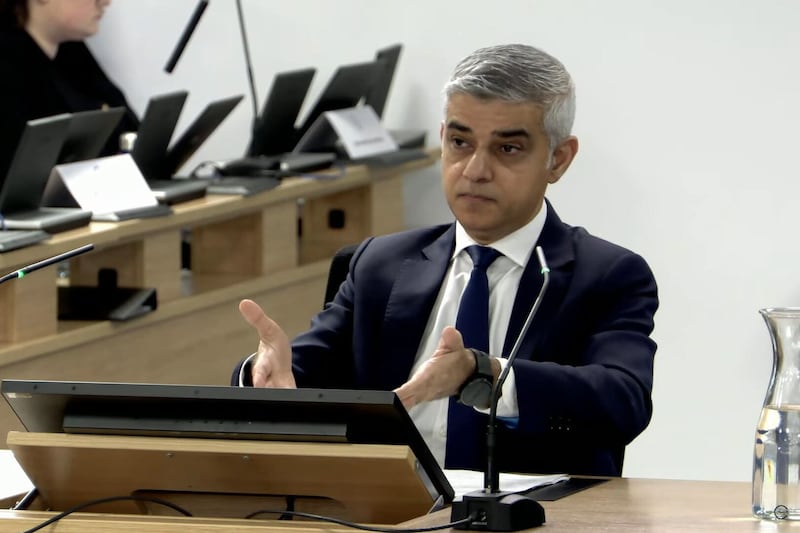COVID hospital admissions are down more than 30 per cent on this time last year despite rocketing numbers of new cases between Christmas and the new year.
Over the past seven days, a record 50,627 people have tested positive for the virus in Northern Ireland compared with just over 12,500 in the same period a year ago.
A total of 348 Covid patients were being treated across hospital wards yesterday - on January 4, 2021, the figure was 513.
Similar trends are being seen across the NHS and the Republic, which experts say is linked to the success of the vaccine rollout as well as the booster jab.
Omicron is now the dominant Covid variant and while highly infectious, it is also understood to be milder than the Delta strain.
The highest percentage of individuals testing positive over the past week in the north are aged 20-24 - with more than 10,500 infected - whereas school age children were linked to surging Delta infection levels in recent months.
However, doctors have expressed concerns about the growing numbers of over-60s with illnesses such as diabetes or high blood pressure catching Omicron. The vast majority of this age group are fully vaccinated.
The number of healthcare staff either testing positive or self-isolating is also placing major strain on the frontline as sickness absence soars.
A total of 30,000 new coronavirus cases in the four days since New Year's Day were confirmed by the Department of Health yesterday.
There were 31 critically ill Covid patients in Intensive Care Units compared with 39 a year ago.
Chief Scientific Advisor Professor Ian Young said he believed as many as one in 10 people in the north had Covid over the festive period.
A total of one in 20 people returned positive results but there were limits on PCR tests so it is likely the "true" figure is much higher, he said.
Professor Young told the PA news agency the virus is transmitting at "extraordinarily high levels in the community", higher levels than at any previous stage of the epidemic.
"Omicron is very very transmissible compared with other forms of the virus so what we're seeing is a very rapid rise to a peak and then hopefully an equally rapid fall after that," he added.
"I don't think we'll see numbers rise a lot more than they are at the moment but the virus will continue to increase probably for one to two weeks."
Meanewhile, Professor Neil Ferguson, the epidemiologist who helped shape the British government's lockdown strategy, yesterday said he was "cautiously optimistic" that Omicron infections in the "key 18 to 50 age group" have plateaued in London and could reduce in the next week.
He said the under-50s had been "driving the Omicron epidemic".
Speaking on BBC Radio 4’s Today programme, he said: “An epidemic reaching such high numbers can’t sustain those numbers forever. So we would expect to see case numbers start to come down in the next week, maybe already coming down in London, but in other regions a week to three weeks.”








